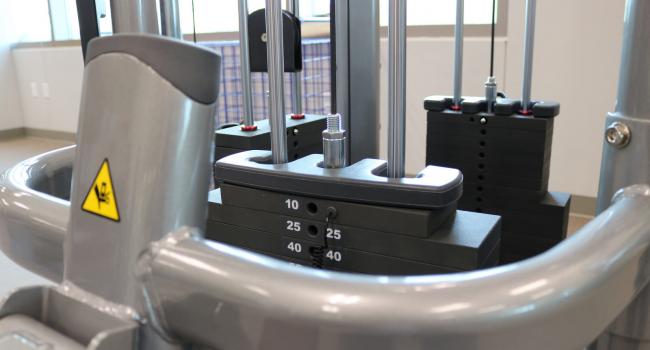
Creatine’s Impact Goes Far Beyond The Weight Room
It is one of the most popular nutritional performance enhancing supplements for athletes. Studies show creatine can increase muscle mass, strength and exercise performance. But, is it safe?
Dr. Richard Kreider, head of the Department of Health and Kinesiology, has long been an expert in creatine research. His studies have repeatedly shown that creatine supplementation can safely improve exercise performance and training adaptations.
Based on recent questions regarding creatine safety in children and adolescents, the Council for Responsible Nutrition (CRN) and the International Society of Sports Nutrition (ISSN) asked Dr. Kreider to update its position stand on creatine. As part of the advisory board for the ISSN, Dr. Kreider and a team of researchers conducted a review of over 200 published studies.
The team found numerous studies showing creatine not only improves exercise performance, but can play a role in “preventing and/or reducing the severity of injury, enhancing rehabilitation from injuries and helping athletes tolerate heavy training loads.
Studies show that short and long-term supplementation is safe and well-tolerated in healthy individuals from infants to the elderly. Studies also found there may be significant health benefits from habitual low dietary creatine ingestion.
Like many performance enhancing supplements, creatine has seen its fair share of controversy. There have been many claims about the side effects of creatine supplementation, including increased injuries, dehydration and muscle cramping.
“Other than carbohydrates, creatine is the most widely used supplement to enhance strength/power performance and training adaptations. So, it’s a target for those who don’t think people should take supplements.”
According to this review, of the more than 1,000 studies conducted, the only consistently reported side effect of creatine supplementation is weight gain. In fact, this review found creatine monohydrate supplementation reduced the incidence of many of the reported side effects.
“The expanding role of creatine in health and medicine is very promising. In particular, the non-ergogenic effects in enhancing recovery and reducing risk of injury (including risk to brain/spinal cord injury) is an important consideration of why athletes may use creatine. Additionally, the potential medical uses, including during pregnancy, are very promising.”
WHAT IS CREATINE?
Creatine was first identified in 1832. Creatine is a naturally occurring, non-protein amino acid compound that is synthesized from several amino acids in the liver or obtained in the diet, mostly from red meat and seafood.
It is transported through the blood and used by parts of the body that have high energy demands, such as skeletal muscle and the brain. Creatine is mainly used by athletes to increase energy production, allowing them to train harder.
Both the International Olympic Committee and the NCAA allow the usage of creatine and it is widely used among professional athletes.
Most recently, creatine has been used to help promote recovery from musculosekeletal injuries as well as maintain strength, muscle mass and cognitive function as people age.
You can read the full report HERE.
About the Writer
Ashley is the Media Relations Coordinator and responsible for news coverage in the Department of Teaching, Learning and Culture as well as the Department of Educational Psychology.
Articles by AshleyFor media inquiries, contact Ashley Green.












